The Big Book of Families
The children have had another fantastic week settling into Reception, they’ve really begun to make some lovely friendships and have continue to learn our daily routines. We’ve had lots of fun exploring and learning this week- we’re so proud of them!
A big Thank you to all the grown-ups who came to our ‘Welcome to Reception’ meeting on Wednesday. It was fantastic to see so many of you! Any questions please don’t hesitate to get in touch.
Phonics
This week the children have learnt the phonemes (the sounds a letter makes) i, n, m and d. The children have been listening to and saying words that begin with these phonemes. They have also been practicing writing the graphemes (the written letter).
Poetry Basket
Each week we will be learning a new poem. We will recite the poem each day. By saying the poem out loud we can focus on the sounds and rhythm of each word or line.
Our first poem is Chop Chop.
Chop, Chop, Choppity Chop.
Cut off the bottom and cut off the top.
What there is left, we put in the pot.
Chop, Chop, Choppity Chop.
I am sure your child will enjoy reciting and performing it for you, they have done so well learning it in school.
Super Subitising
This week we have been practicing our subitising skills. This means, we have been looking and saying how many objects we can see – without counting one by one! Ask your child how many spots they can see by subitising.
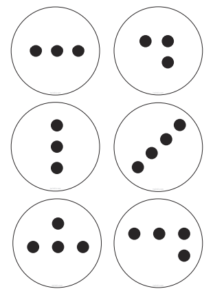
Families
Thank you so much for the family photos already sent in, the children have really enjoyed sharing their home experiences with their friends! We have been reading ‘The Big Book of Families’ where we have talked about how different families can look.
Help at home
Today, your child has come home with a ‘learn at home’ phonics sheet. The sheets link to our current learning in phonics and will be sent home each Friday. Please support your child by practising their new sounds and reading skills at home. Your child will also be coming home with their reading diary and information explaining how to log on to the ebook, your child’s personal log in details are stuck inside the front cover, under the dinosaur! They will be visiting the school library next week to pick a reading for pleasure book to bring home too.
Reminders
We will be doing PE on Monday, so please send your child to school wearing their PE kit and trainers. They will stay in this all day.
Stay and Learn Sessions
This is an opportunity for you to come into school to find out about the Early Years Curriculum and watch your child Learning in school.
Phonics Phase 2- 12.10.23- 8.50am-9.30am
Maths- 15.11.23 2.20pm-3.00pm
Phonics Phase 3- 16.1.24 2.20pm-3.00pm
Early Writing- 05.02.24 2.20pm-3.00pm
World Book Day 07.03.24 -8.50am-9.20am
Learning Journey Drop In’s
An opportunity to “drop into” school and share your child’ learning journal with them.
Times- 8.45am-9.15am and 3.15pm-3.45pm (Tuesday and Thursday)
Week beginning 11.12.23
Week beginning 25.03.24
Week beginning 08.07.24
Don’t forget to email your pictures from home stjameseyfs@spherefederation.org thank you, have a lovely weekend!
Mrs. Kendrew, Mrs. Rippon and Miss. Feldman
Hello Everyone!
The children have all been busy settling back into nursery routine and we also have some new faces!
Here’s what we’ve been getting up to over the past few weeks …


Notice
- Library day is on a Tuesday. Your child will bring home a story from our library once a week so this must be returned the following week.
- PE day is on a Wednesday. Your child may come dressed in a PE kit (joggers, t-shirt, jumper, trainers) just something comfortable to move around in.
Have a lovely weekend!
Miss Ward
Help at home
Help at home
Geography – Where in the world am I?
- Ask your child to point out major UK cities on a map.
- We have been locating mountains and rivers and I am sure they would love to show you where these are too.
- We have also been learning about the capital cities of the United Kingdom, ask them about what they have learnt and any facts they remember.
Times tables
We are having a big push on consolidating our 2’s, 5’s and 10 times tables as well as learning our 3’s and 4’s.
- Encourage your child to access TT Rockstars.
- Practice for our tests every Friday.
Reading
- Hear your child read through the week and sign their reading record.
- Encourage the use of expression in their reading.
- There are lots of extra ideas, of ways to help, in their reading record books.
Our First Full Week in Reception and Important Information shared on Friday 15th September
Wow! What a fantastic first full week have had in school with our new class family. The children have been amazing and settled, thank you all so much for preparing them all so well. It has been so lovely to begin to get to know each and every one of them. I hope they have had lots of exciting news to share with you.
We have started our phonics lessons this week. The children have shown great listening and were proud to learn their first four sounds (s,a,t,p). Today, your child will be bringing home a ‘learn at home’ phonics sheet. The sheets link to our current learning in phonics and will be sent home each Friday. Please support your child by practising their new sounds and reading skills at home.
PE Days
Reception’s PE day is on Monday. We will have our first PE lesson on Monday 25th September. Please can you send your child to school in their PE kit on this day.
Bookbags, spare clothes and wellies
Please send your child with their bookbags each day. Please also send a pair of wellies and a bag of spare clothes/underwear that can be left at school. We will send it home if it needs washing or replacing.
Please double check that all you child’s school items are labelled with their name.
Dates for your diary
This year we will be offering various opportunities for you to find out more about Early Years at school. There will be after school meetings with your child’s teacher. There’ll be stay and learn sessions where you can come into school and be part of a lesson and then find out how you can help at home. Then, opportunities to pop into school to share your child’s learning journey book with them. We hope that you can join us for as many of these sessions as possible.
Welcome to Reception
An invitation to this event was emailed to you back in July but here is a reminder. Come to school to find out the basic ‘need to knows’ about life in Reception. 20.09.23- 6pm-6.30pm
Stay and Learn Sessions
This is an opportunity for you to come into school to find out about the Early Years Curriculum and watch your child Learning in school.
Phonics Phase 2- 12.10.23- 8.50am-9.30am
Maths- 15.11.23 2.20pm-3.00pm
Phonics Phase 3- 16.1.24 2.20pm-3.00pm
Early Writing- 05.02.24 2.20pm-3.00pm
World Book Day 07.03.24 – 8.50am-9.20am
Learning Journey Drop In’s
An opportunity to “drop into” school and share your child’ learning journal with them.
Times- 8.45am-9.15am and 3.15pm-3.45pm (Tuesday and Thursday)
Week beginning 11.12.23
Week beginning 25.03.24
Week beginning 08.07.24
Home link…
Next week, we’ll be talking about our families using the book The Great Big Book of Families by Mary Hoffman and Ros Asquith, as our talking point. To help the children in our discussions, please send in a photograph of your child with their family. You can send the photos to the Reception email address stjameseyfs@spherefederation.org . We will also be doing some observational drawings in our Creative area so if you go on a walk and see any natural objects such as leaves, pebbles, conkers and pieces of wood please can you bring them up for us to draw. Thank you so much.
Forest Friday
Year 1 thoroughly enjoyed their first session in our forest school. This takes place in the woodland area towards the back of the school and it gives the children a chance to learn in an outside, natural environment.
Here are a few snaps from Friday afternoon.









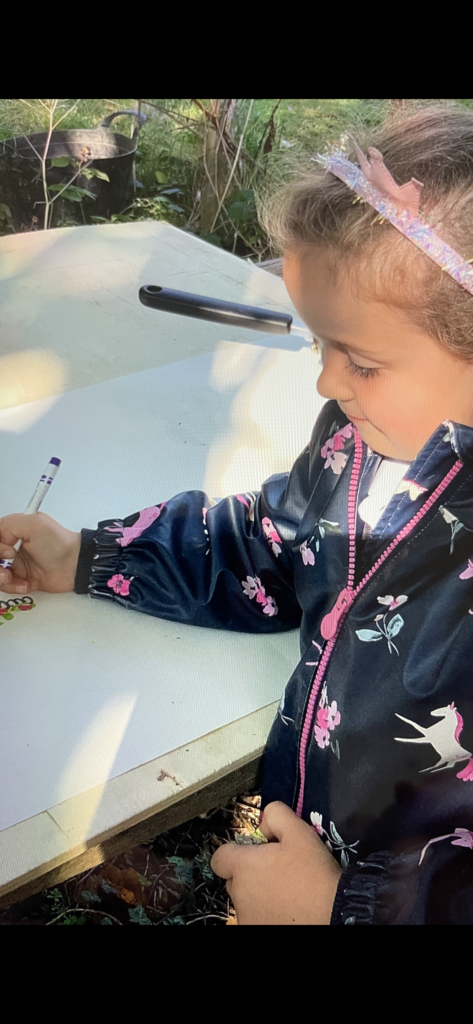
Within these weekly sessions, children will be supported to take risks appropriate to the environment and to themselves.
It was lovely to see all of the children exploring different areas within the woodland. The activities included:
- litter picking
- mud kitchen
- art
- exploring the foliage
- hammocks
- swings
- balancing
Please remember to send your child with wellies and long trousers each Friday or waterproofs if you have them.
Living and Learning – I use the 8 R’s to help me learn.
Years 5 and 6 have had a fantastic second week back at school. Pupils’ behaviour and general attitude to learning has been brilliant – I can already see children making serious improvements across many subjects!
On Monday, we had our first official living and learning ‘circle time’. In this session, we get and give the opportunity for all pupils to have a voice and to listen to others. For this session, our focus was using resilience in our lives, which suits with our Christian value this half-term (perseverance), too.
All pupils responded really well and provided advice for others to overcome and succeed in different scenarios. I have since seen pupils using resilience, and many more of our 8 R’s, in school time.
Help at home:
Have conversations with your child on things they may be finding tricky in and out of school. See if you, or they, can come up with some solutions to tackle this issue by using our 8 R’s.
Pupils have also had their first set of homework sent home. Please complete the following with your child:
- times tables practice
- spelling practise (choose around 8 words per week)
- arithmetic practice (use the questions your child wasn’t sure of on their tests, which they should bring home
- read regularly with your child and sign their reading record
A bright start!
Year 3 and Year 4 have settled back into school really well and they have made Miss Gilliland and me (Mr Kilner) feel very welcome in our new roles. We’ve focussed on being ready for learning and establishing our classroom routines and the children have responded well. I’m looking forward to a super year with them all.
A few notices to make you aware of…
Spelling – Spelling has changed slightly on the homework sheets. There’s no longer a specific list of spellings to learn. Instead, there’s a list of 40 spellings that children need to learn within the first half-term. On a Friday each week, there will be a spelling test. We’ll keep track of our scores and support children with their misconceptions as soon as they may happen.
PE days – Our PE days are on Tuesdays and Thursdays. On Tuesdays, Year 4 will need to remember their swimming kit as they go swimming at Wetherby Leisure Centre. Year 3 will have PE on this day in school. Please ensure your child comes to school in the correct PE kit for these days.
Homework books and reading records – Your child has brought home their homework book and reading record. Each week there will be homework for them to complete; there’s no need to bring this book into school unless you’d like me to read or mark something. Your child will bring home a reading book this weekend. Please encourage your child to read throughout the week and, if time permits, please try to hear them read. The reading record is for you to record their reading. Children will need to bring this into school every Friday signed by an adult. This is so that we can keep track of the amount of reading the children are doing at home and whether we can support in any way.
Please feel free to contact me if you have any questions!
Science
Over the next few weeks in Science we are learning about Animal needs for survival. Last week, we started by looking at mammals. We found out that a mammal is an animal with fur or hair on it’s body. We learnt that they have four basic needs for survival (air, water, shelter and food) and they are either a carnivore, herbivore or omnivore. We then grouped images of mammals, based on different categories such as: dietary requirements or whether they inhabit land or sea.
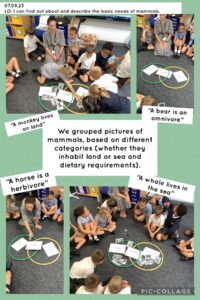
Today, we learnt about birds. A bird has feathers, wings and beak. Most birds are insectivores, meaning they eat insects. Some are also omnivores. We looked at some images of birds and then went on a bird hunt around school and recorded our finding in a tally chart.
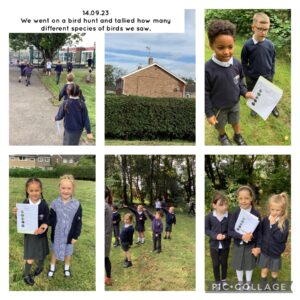
Help at home: create a bird feeder to hang in your garden or to bring into school. What birds can you spot (use the bird spotting survey to record your findings). Ask your child what key facts they know about birds.
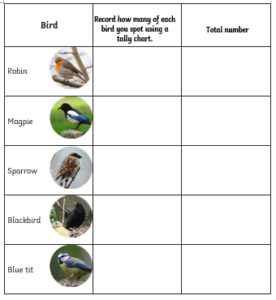
Geography – Where in the world am I?
We are geographers.
Over the coming weeks, the children will develop their knowledge of location when locating and identifying the four countries that make up the UK and their capital cities. They also learn which seas surround the UK.
The class will be exploring both human and physical features in their own locality using maps, photographs and fieldwork.
To begin with, we used Google Earth to explore our continent, country, city and town. The children were amazed as we zoomed into planet Earth gradually and finally arrived at our school gates.
Help at home by discussing these images with your child. Can they recall which country, city and town they live in?
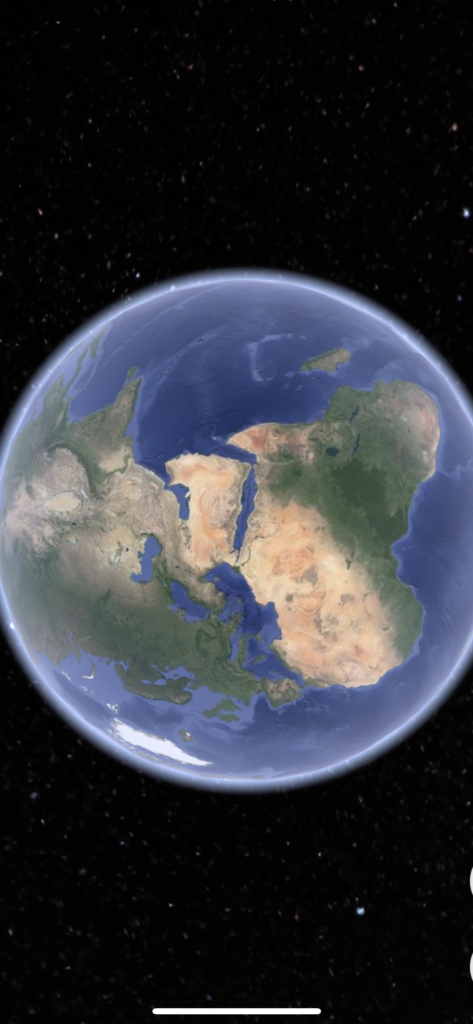
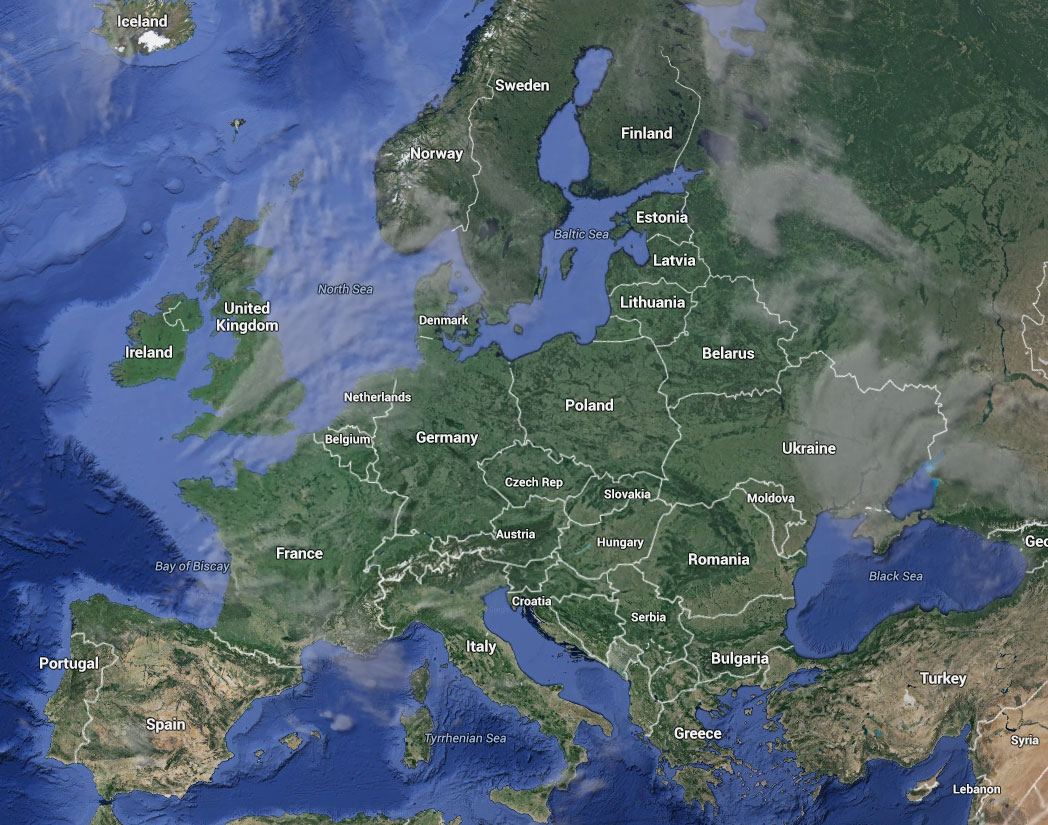
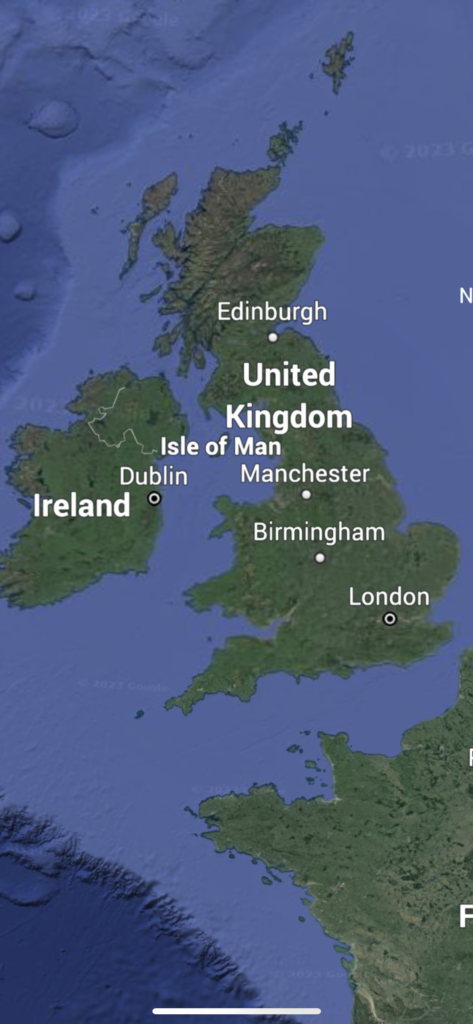
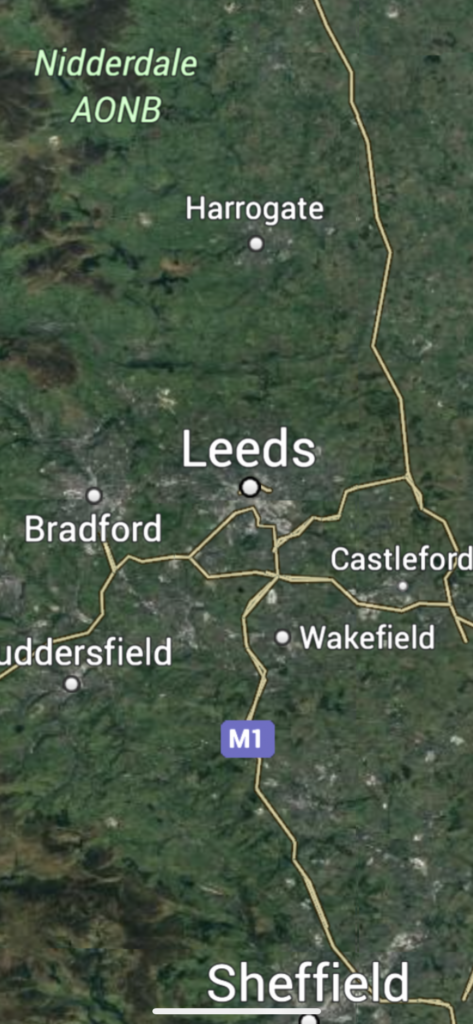
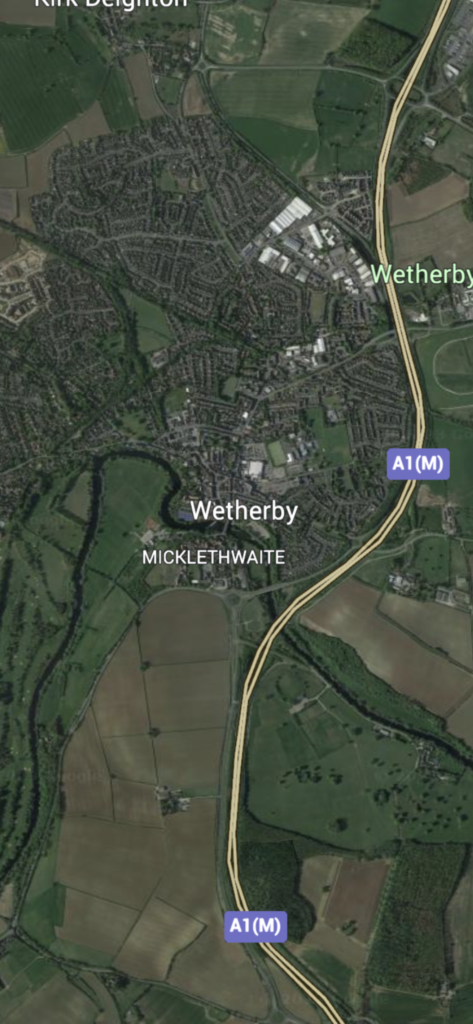
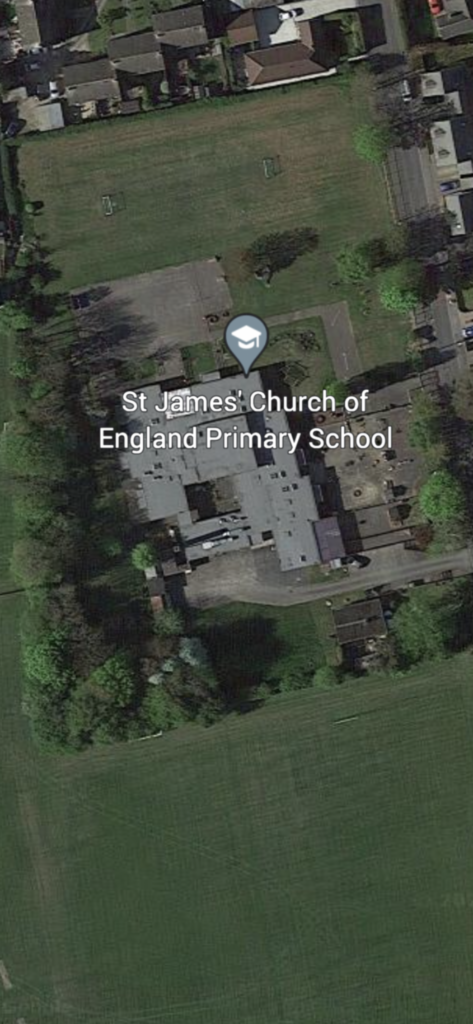
Next, the children thought about the size of each locality.
The continent is very big! – Woody
Wetherby looks a lot smaller than Europe! – Daisy
Using concentric circles the class were able to compare the sizes of each location giving them a sense of scale.
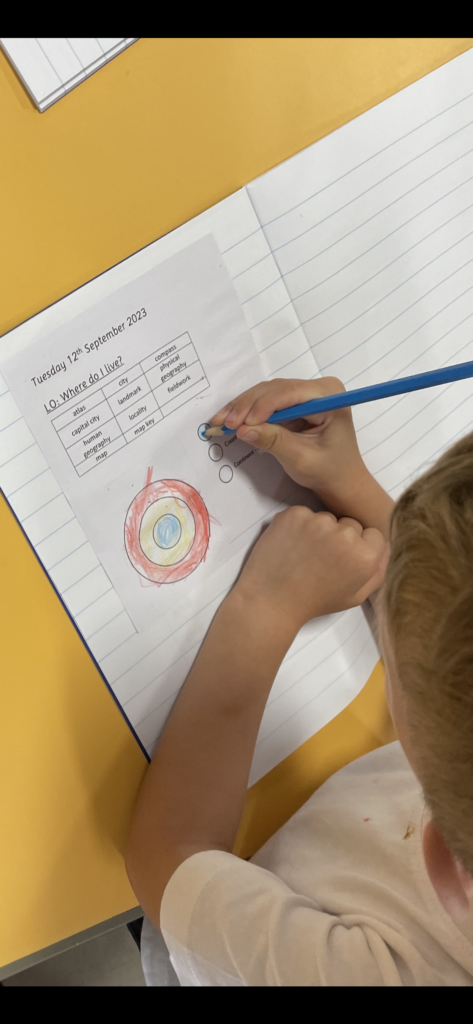
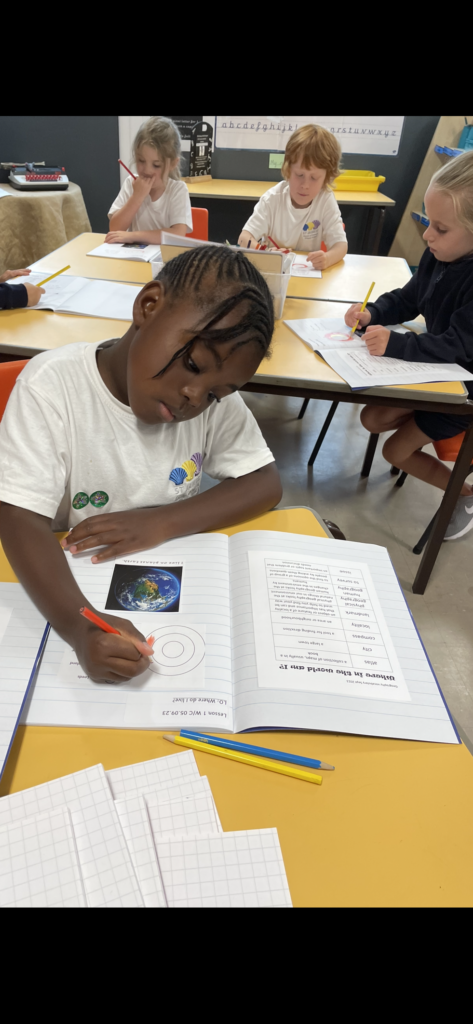
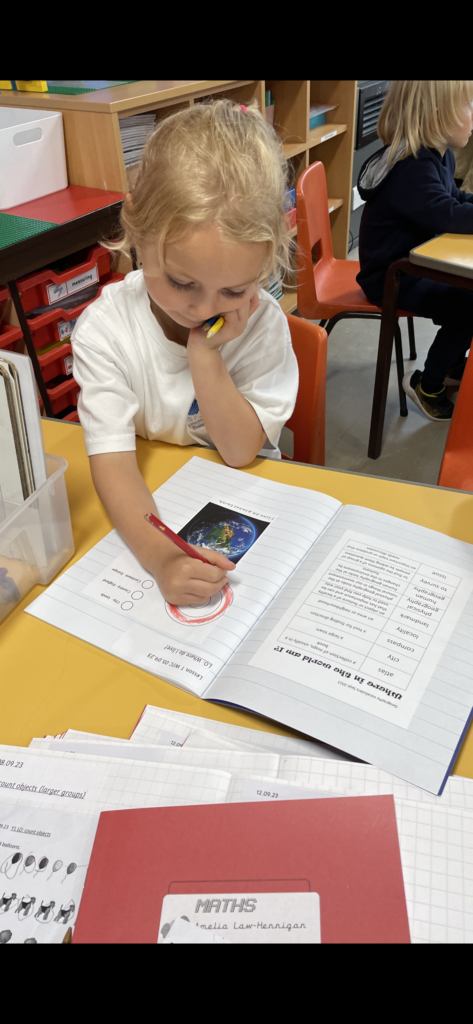
Below is the geographical vocabulary that the children will be learning throughout this topic.
atlas: a collection of maps, usually in a book
• city: a large town
• capital city: a city where the government of a country is located
• compass: a tool for finding direction
• locality: an area or neighbourhood
• landmark: an object or feature of a locality that has importance and can be used to help you find your way
• physical geography: physical geography looks at the natural things in our environment
• human geography: human geography looks at changes in the environment by humans
• fieldwork: observing and collecting data in a locality
• map: a drawing of a place, usually from above
• map key: a little box on a map which explains what the
different lines and symbols on a map mean
Important days and dates/ Help at home
Important days and dates
PE – Tuesday and Friday
Spelling test – Friday
Library – Friday (books returned each Thursday)
Water bottles
These should be brought to school daily and they will be brought home every day for refreshing and cleaning.
Homework/Spellings
Whole school homework is set every Friday (along with new spellings). Homework and spellings can also be accessed from the website.
Reading
In Year 1, we will continue using e-books for our reading practice. Your child will bring home a log-in for the e-book website. Please log out of last year’s account and log in with the new account. This will ensure any new books are in the account.
Numbots
We will begin to use Numbots in Year 1. Your child has been sent home with all the necessary log in details.
What is Numbots? 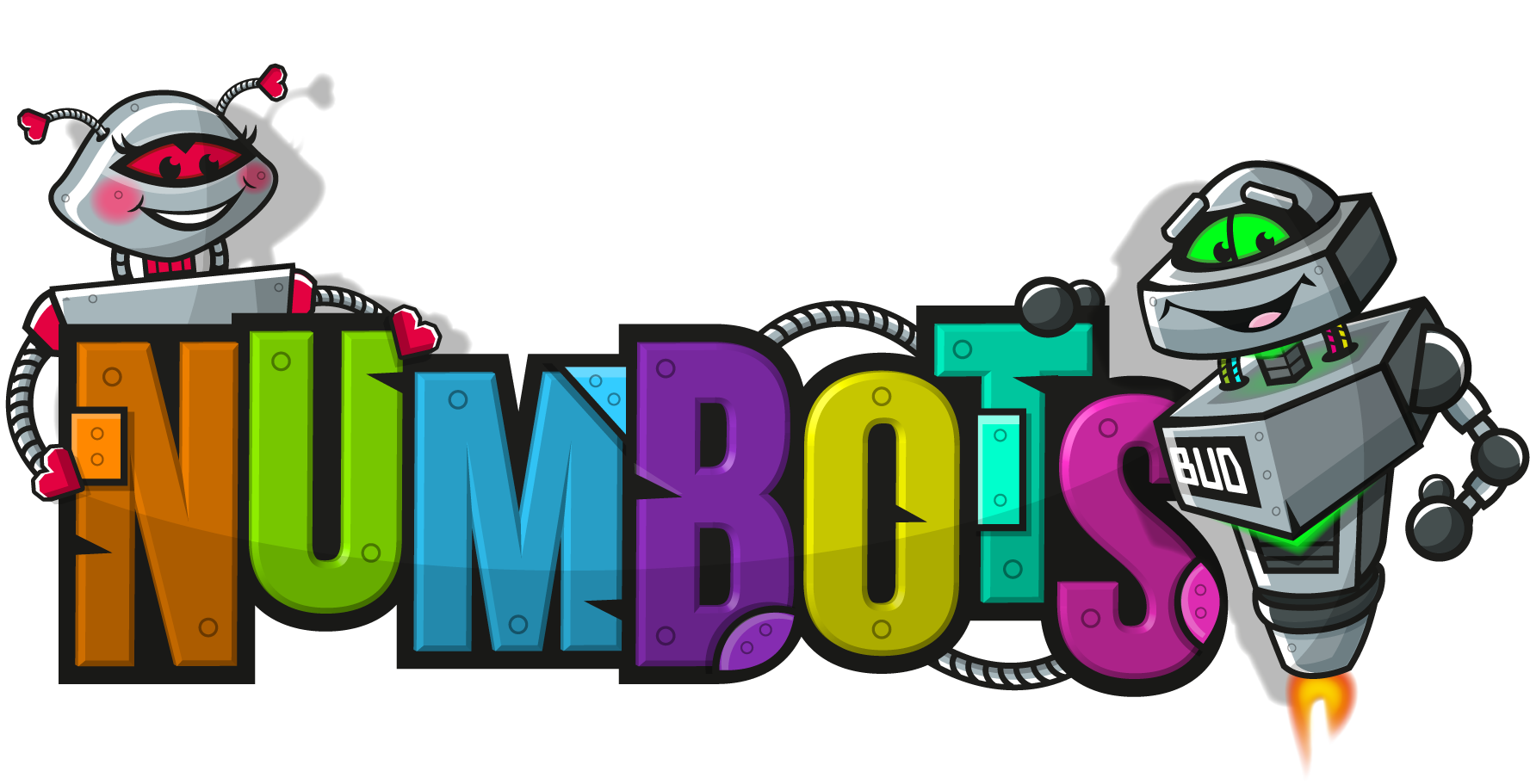
NumBots is all about every child achieving the “triple win” of understanding, recall and fluency in mental addition and subtraction, so that they move from counting to calculating. NumBots focuses on automatic recall of number facts as well as developing conceptual understanding.
Certificates will be awarded every Friday for children who complete the different stages.
Help at home
For spelling practice, reading and Numbots, little and often (10/15 minutes a day) is recommended.
Uniform
Please do check the uniform policy https://www.stjameswetherby.leeds.sch.uk/find-out/policies/ to ensure your child is wearing the correct items including for PE days. Earrings must be removed on PE days.
Finally, please do ask if there are any queries and keep checking back on class news to find out more about your child’s learning!
The adults in Year 1 are:
Mrs Freeman – Class Teacher (Monday, Tuesday, Wednesday and Friday)
Miss Gledhill – Class Teacher (Thursday)
Mrs Cairnes – Teaching Assistant
Miss Rigley – Teaching Assistant